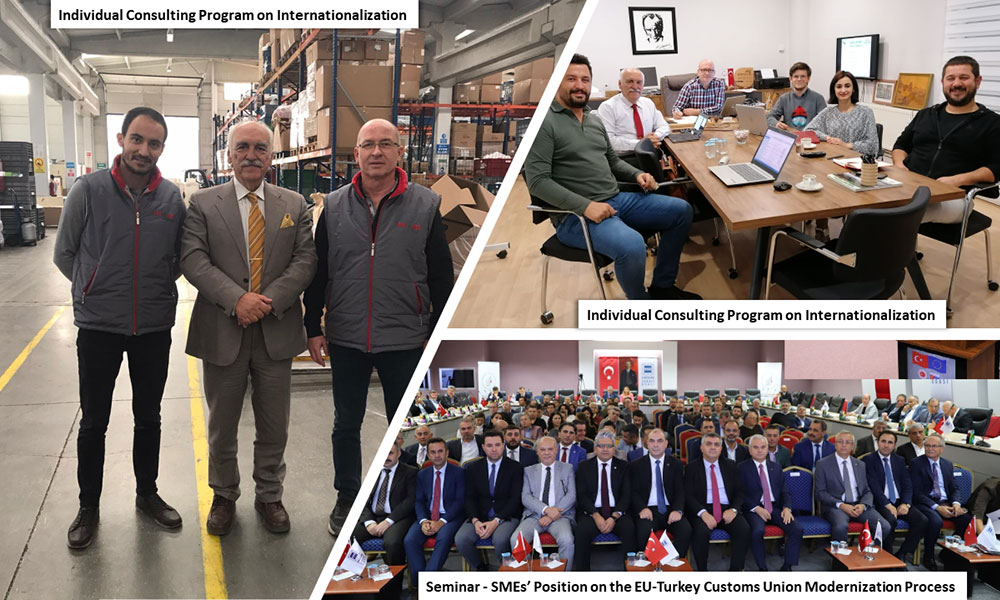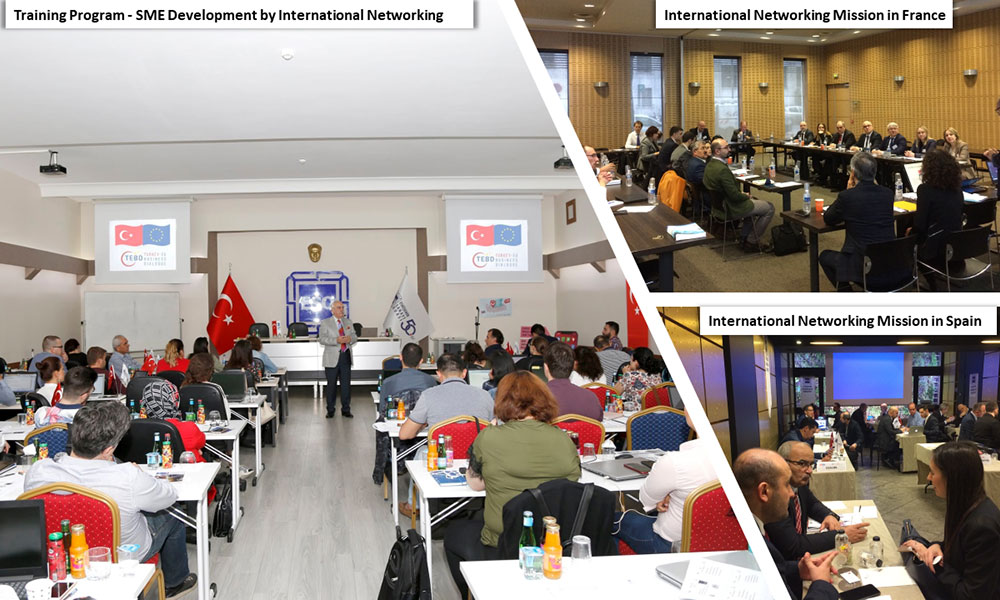15 January 2021
Networking leading to Internationalization
“Develop SMEs and Clusters by International Networking” is a project that has been developed and implemented by Eskişehir Chamber of Industry (Turkey) in partnership with Barcelona Chamber of Commerce (Spain), Auvergne-Rhône-Alpes Chamber of Commerce (France), and Sivas Chamber of Commerce and Industry (Turkey). It is one of 19 Chamber Partnership projects which is being supported by the European Union in the framework of TEBD.
Nowadays, as the competition becomes global, individual SMEs experience difficulties in business development and are often unable to take advantage of market opportunities. In such a challenging business environment, networking offers an important route for individual SMEs to address their problems as well as to improve their competitive position. By coordinating their international activities, enterprises can collectively achieve business goals with closer networks and stronger clusters. SME clusters are defined as important and dynamic players within the international market responding to global competition challenges by capitalizing on local opportunities and collective competitive advantage. In order to ensure the efficiency and globalization of clusters, the most important subject is networking. The project has focused on promotion of SMEs, Clusters and Chambers by building capacity on the international networking and marketing.
This project aims to internationalize SMEs and Clusters, strengthen the business relations and integrate the Turkish and European business communities in order to develop and further expand their international collaborations by creating networks between counterparts, and create new opportunities for developing the regions by producing actions to improve SMEs by creating international networks and making them stronger together with a clustering approach. Specifically in sectors such as aviation and railway industries. In this frame, the project has used some practical instruments in order to achieve this aim.
The project has been based on a defined methodology to “develop SMEs and Clusters by international networking” in order to increase their global competitiveness. The content of the methodology has been formed by the definition of international networking, but details of the project activities have been shaped by considering the scales of the target groups which are the local SMEs and Clusters. The methods used in achieving the goals are as follows: Needs Assessment Surveys on SMEs and Clusters, Trainings about the SME and Cluster Development by International Networking, Fact-finding Missions to Spain and France, International Networking Missions to Spain and France, Individual Consulting Program on Internationalization, Seminars about the SMEs’ Position on the EU-Turkey Customs Union Modernization Process, and New Cluster Coordination Offices to be established by Eskişehir Chamber of Industry and Sivas Chamber of Commerce and Industry. Besides these methods, the project has also worked for social dialogue in line with the EU’s related principles, since strong collaborations are advised between countries according to the Lisbon Strategy.
As the project concentrates on specific sectors as aviation and railway industries in different regions, the target groups have been more interested in the planned activities. The creation of a sectoral specialization environment is an approach that increased the participation of SMEs and the Clusters to the actions. This approach has allowed each region the chance to build on their comparative advantages in targeted industries, and the opportunity to work in collaboration with other partners to drive productivity and internationalization. Moreover, as supported by the European Commission in its Strategic Plan for 2020, the project has consolidated synergies with cross boundary sectors such as automotive and machinery production industries, which are also very strong in the target regions.






